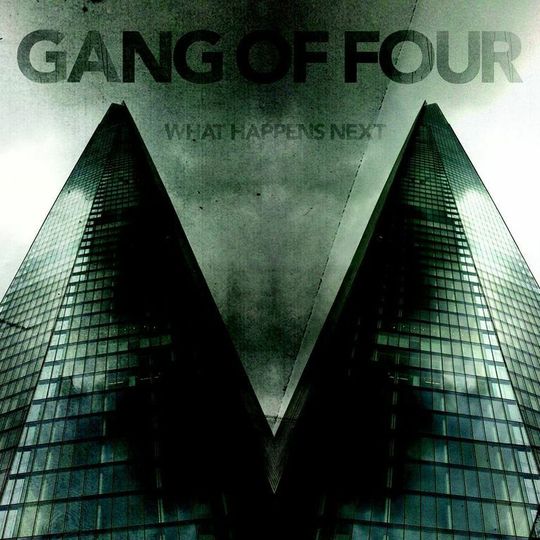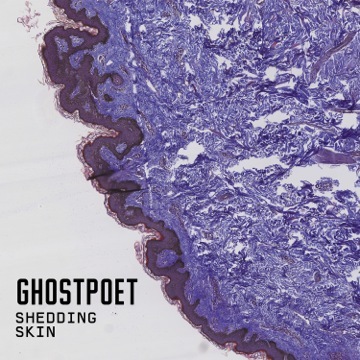It probably goes without saying that Gang of Four’s Entertainment is one of the unassailable titans of guitar music. It’s the kind of album that grudgingly sneaks its way onto almost any ‘Greatest Album of All Time’ list, making Gang of Four an inevitable reference point for lazy journalists writing about any band making scratchy yet danceable guitar music. I know all this, you all know this and as much as Gang of Four themselves might want to pretend otherwise, Entertainment was a debut album so obviously great and so obviously influential that it overshadowed anything the band did after (though I have a big soft spot for both ‘I Love A Man In Uniform’ and ‘To Hell With Poverty’).
And so we come to What Happens Next, Gang of Four’s ninth album and - this is the kind of phrase that causes a slight feeling of unease - the first not to feature vocalist Jon King. Instead Andy Gill has - here the feeling of unease deepens - '[reimagined] Gang of Four from the ground up'. It’s difficult to know what to expect with this album. Gang of Four aren’t a band like The Fall, who have carried on pumping out albums regardless of critical interest, nor have they been away for long enough that this could be considered a reunion or comeback album: indeed, 2011’s Content was very well received. They’re somewhere in the middle, releasing albums every several years but mostly existing below the critical radar.
But enough of the history lesson. What are this new Gang of Four actually like? Well, not all that good it turns out. One fact that becomes immediately apparent is that new vocalist John 'Gaoler' Sterry is nowhere near as good as Jon King. King was never the most technically proficient singer, but he had a fire and energy that perfectly suited the music, and which is sorely lacking from Sterry’s anonymous, wimpy delivery. The difference is most keenly felt when guest vocalist Herbert Grönemeyer steps in on undeniable album highlight ‘The Dying Rays’ and delivers a much more assured performance.
At least Andy Gill, as the only surviving member of the original line-up, is pretty much as good as he ever was. The Hendrix of post-punk is on top form here; his guitar work is endlessly inventive and drenched in all manner of wonderful feedback and noise throughout. Gill must be lauded as producer, too, as the record truly sounds fantastic and jumps out at you in a way that often helps cover up the shortfalls in vocals and songwriting. Having said that, the production tricks get a little overused by the end of the record but the forays into electronics here add a welcome new element to the classic Gang of Four sound.
On the subject of the classic Gang of Four, it’s sad to say that the greatest weakness of What Happens Next is that it’s at its least interesting when it sounds most like Gang of Four. The previously mentioned ‘The Dying Rays’ is great, but it’s haunting and ethereal and reminds me more of early music. ‘Obey the Ghost’ sounds a bit like Portishead doing malicious, lurching electro but is let down by terrible lyrics about being Facebook friends with celebrities. Japanese guitar hero Tomoyasu Hotei adds some serious rocking to ‘Dead Souls’ but the end product is much more like a Nine Inch Nails album track. The fact that the guests put on the best performance (with the possible exception of The Kills’ Alison Mosshart who, while better than Sterry, is still just kind of there) suggests that Andy Gill doesn’t really have a good idea of what he wants his new Gang of Four to be like, and that’s a damn shame.
What’s also a shame is seeing a band renowned for their political commentary reduced to some of the ham-fisted lyrics on show here. I can only assume Jon King was the lyricist, given the trite, sixth-form nature of some of the lyrics. I wasn’t expecting great things from a song about organised religion but the first line of ‘Graven Image’ is “Your free will is heresy”, and it doesn’t get any better from there. ‘Where The Nightingale Sings’ is pretty rotten throughout but something about the chorus lines “false memories/ fake history/ next to talk of racial purity” just rubs me up the wrong way. There are similar examples throughout - “chew up whatever the dollar buys” from ‘First World Citizen’ feels incredibly lazy - and the result feels like a band playing at being political. In fact that’s a good summary of the whole album: Andy Gill and a bunch of other people playing at being Gang of Four. There’s a good amount of stuff to enjoy, especially in the instrumentation, but if it was by any other band I wouldn’t give it a second chance, and I think that says it all.
-
5Joseph Rowan's Score
-
5User Score






















